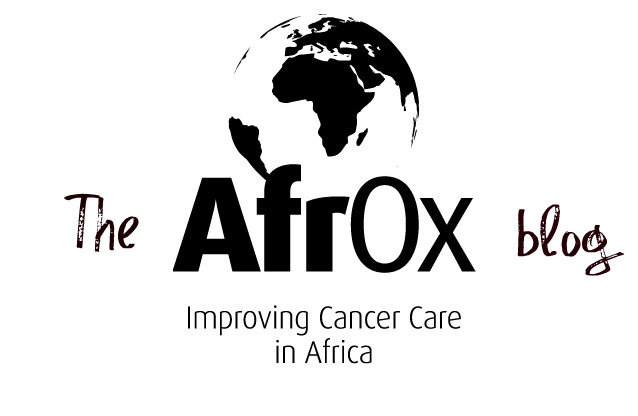Through the AfrOx Cancer Nurse Training Programme, AfrOx aims to provide training for nurses in Malawi, Ghana and Uganda. Stewart Kerr, Project Manager, AfrOx, tells us more about the first nurse training workshop in Ghana ….
Nurses have an essential role in the provision of cancer care in Africa and they work tirelessly to look after their patients. Cancer nurses in Africa are front line care givers: they administer drugs, communicate with the patients and their families, change dressings and help maintain the dignity of the patient throughout their treatment or until they pass away. However, these cancer nurses are often overworked, poorly paid and have low social status; and they have few career development opportunities.
A critical problem is that in countries like Ghana, Uganda and Malawi, there is no specialist training available for cancer nurses. This year, working in collaboration with the University of Warwick, medical training schools, and ministries of health, AfrOx’s aim is to provide training for 100 nurses involved in cancer care in Ghana, Uganda and Malawi and to provide a free online training programme that will be of benefit to cancer nurses across Africa.
The first training workshop took place in Malawi in May (click here to learn more), and this month, we held the first workshop in Ghana at the Komfo Anokye Teaching Hospital (KATH) in Kumasi. We took out a team of three volunteers Sally Campalani, Caitlin McCoy, and Fiona Young, who are full time oncology nurses based in the UK with a vast wealth of experience in oncology nursing and training of nurses new to oncology.
The local faculty leaders included Dr Awauh (Medical Director of KATH), Dr Osei Obonsu (Medical Oncologist at KATH), Mrs Patience Ampong (Director of Nursing Services KATH), Mrs Sekyere and Mrs Antwi (both oncology nurses, KATH).
Thirty, handpicked Ghanaian nurses who work with cancer patients in their day to day duties attended the workshop, dressed rather splendidly in there smart uniforms with fabulous nursing caps which reminded me of pictures I have seen of nurses from the UK in 1950s, which put me to shame dressed in my shorts and flip-flops.
Sally, Caitlin and Fiona worked together with the talented local faculty to run the training workshop. The team covered a range of subjects, including how to communicate with oncology patients, the basic biology of cancer, an explanation of the treatments available in Ghana (Radiotherapy, Chemotherapy and Surgery), administration and side effects of the treatments, signs and symptoms of cancer and advocacy. One question that arose during the workshop was that some nurses feared that after patients had gone through radiotherapy, they were radioactive and they were thus reluctant to touch them for 24 hours after their treatment. The faculty explained how radiotherapy worked and helped to dispel this myth and encouraged these nurses that it would be safe to continue to care and tend to their patients after radiotherapy.
In the session on advocacy, when we were talking about how to raise awareness of cancer in the community, we found that a majority of the nurses at some point or another had talked with women in their community or at their church about the signs and symptoms of cancer - especially breast and cervical. They also run a small palliative care outreach programme, where they go to the homes of terminally ill cancer patients and teach their families how to care for them and administer pain relief. I was impressed to learn that they carry out this service voluntarily, out of a feeling of duty towards their patients, usually without their transport costs or overtime being paid for. Thus, for this reason it is confined to Central Kumasi.
The training workshop was very successful, with 100% of the nurses stating in their post evaluation questionnaire that they would change their day-to-day clinical practice in the treatment of cancer patients. We were impressed by the hard-working cancer nurses and the inspiring leadership team at KATH who are both committed to providing good cancer care for their patients. As a long-term objective of this programme, we are hoping to set up a formal partnership to provide longer-term mentoring and training; and to support efforts in Ghana to set up a post-graduate specialist cancer nurse training course.
Please check this blog regularly for progress updates.
If you would like to donate to support AfrOx’s work, please click here.


No comments:
Post a Comment